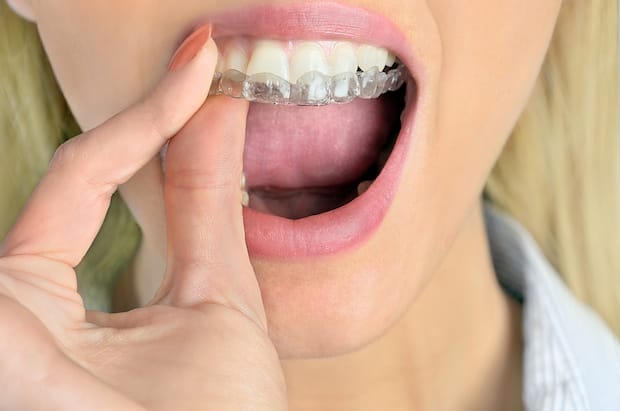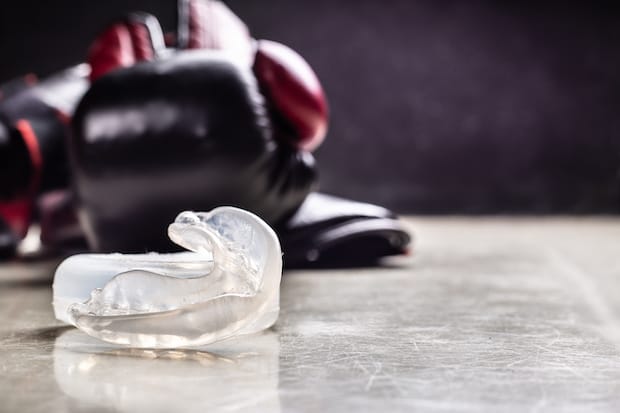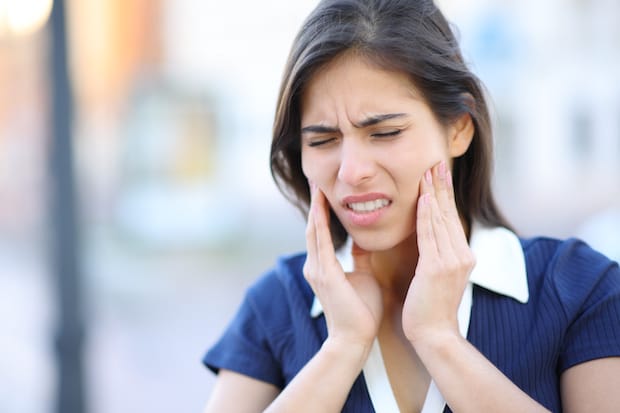Dental Appliances
Our dentists may rely on a variety of dental devices to support your oral health while playing sports, undergoing dental treatments, or even while you sleep. We’ll help you explore your options and find the perfect fit for you.
Night Guards
Night guards can protect the teeth and mouth from bruxism, a condition that causes a person to grind their teeth. Grinding can be very damaging to the teeth, soft tissues, and jaw over time, so it’s important to protect your mouth with a well-fitted night guard made in a professional dental lab.
Retainers
Retainers are often used as a tool in the final stage of orthodontic treatment. A retainer helps “retain” the new positions of the teeth after they have been moved using braces or other orthodontic treatments. Our dentists can help make the process simple and ensure you receive a comfortable, perfectly fitted retainer.
Sports Mouth Guards
From amateurs to professional athletes, sports can be very damaging to the mouth, jaw, and head. A well-fitted sports mouth guard can protect you or your kids during high-impact or group sports, all while making it easy to breathe and speak.
TMD/TMJ Devices
TMD devices can help you relieve pain associated with TMD and protect your teeth and mouth by preventing clenching and grinding of the teeth. These devices are also known as occlusal splints or night guards.
What Are Temporomandibular Joint Disorders?
The temporomandibular joint connects the jaw with the skull. Disorders of this joint, known as temporomandibular disorders or TMD, can happen for various reasons, but are often associated with clenching or grinding the teeth. TMD often results in jaw pain, tooth pain, and headaches.
Do You Need a TMJ Device?
If you suffer from jaw pain, headaches, tooth pain, or other symptoms associated with bruxism and TMD, speak with our dentists about having a custom TMD device fitted. Our dental team will take impressions of your teeth and have your device custom-made so it fits your teeth perfectly.
Contact Form
Fill out the form below with any questions or comments you may have, and we will contact you shortly.
"*" indicates required fields





